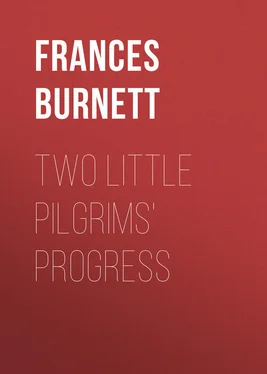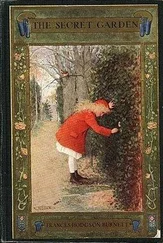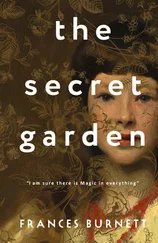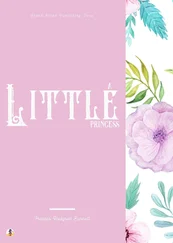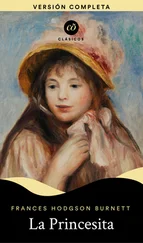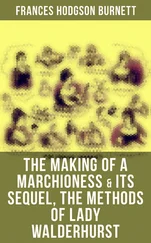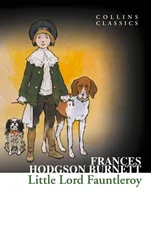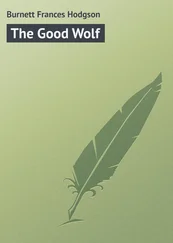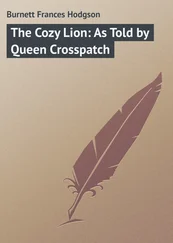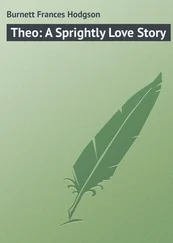Frances Burnett - Two Little Pilgrims' Progress
Здесь есть возможность читать онлайн «Frances Burnett - Two Little Pilgrims' Progress» — ознакомительный отрывок электронной книги совершенно бесплатно, а после прочтения отрывка купить полную версию. В некоторых случаях можно слушать аудио, скачать через торрент в формате fb2 и присутствует краткое содержание. ISBN: , Издательство: Иностранный паблик, Жанр: foreign_prose, на английском языке. Описание произведения, (предисловие) а так же отзывы посетителей доступны на портале библиотеки ЛибКат.
- Название:Two Little Pilgrims' Progress
- Автор:
- Издательство:Иностранный паблик
- Жанр:
- Год:неизвестен
- ISBN:http://www.gutenberg.org/ebooks/50471
- Рейтинг книги:5 / 5. Голосов: 1
-
Избранное:Добавить в избранное
- Отзывы:
-
Ваша оценка:
- 100
- 1
- 2
- 3
- 4
- 5
Two Little Pilgrims' Progress: краткое содержание, описание и аннотация
Предлагаем к чтению аннотацию, описание, краткое содержание или предисловие (зависит от того, что написал сам автор книги «Two Little Pilgrims' Progress»). Если вы не нашли необходимую информацию о книге — напишите в комментариях, мы постараемся отыскать её.
Two Little Pilgrims' Progress — читать онлайн ознакомительный отрывок
Ниже представлен текст книги, разбитый по страницам. Система сохранения места последней прочитанной страницы, позволяет с удобством читать онлайн бесплатно книгу «Two Little Pilgrims' Progress», без необходимости каждый раз заново искать на чём Вы остановились. Поставьте закладку, и сможете в любой момент перейти на страницу, на которой закончили чтение.
Интервал:
Закладка:
Two Little Pilgrims' Progress / A Story of the City Beautiful
I
The sun had set, and the shadows were deepening in the big barn. The last red glow – the very last bit which reached the corner the children called the Straw Parlor – had died away, and Meg drew her knees up higher, so as to bring the pages of her book nearer to her eyes as the twilight deepened, and it became harder to read. It was her bitterest grievance that this was what always happened when she became most interested and excited – the light began to fade away, and the shadows to fill all the corners and close in about her.
She frowned as it happened now – a fierce little frown which knitted her childish black brows as she pored over her book, devouring the page, with the determination to seize on as much as was possible. It was like running a desperate race with the darkness.
She was a determined child, and no one would have failed to guess as much who could have watched her for a few moments as she sat on her curious perch, her cheeks supported by her hands, her shock of straight black hair tumbling over her forehead.
The Straw Parlor was the top of a straw stack in Aunt Matilda’s barn. Robin had discovered it one day by climbing a ladder which had been left leaning against the stack, and when he had found himself on the top of it he had been enchanted by the feeling it gave him of being so high above the world, and had called Meg up to share it with him.
She had been even more enchanted than he.
They both hated the world down below – Aunt Matilda’s world – which seemed hideous and exasperating and sordid to them in its contrast to the world they had lived in before their father and mother had died, and they had been sent to their sole relation, who did not want them, and only took them in from respect to public opinion. Three years they had been with Aunt Matilda, and each week had seemed more unpleasant than the last. Mrs. Matilda Jennings was a renowned female farmer of Illinois, and she was far too energetic a manager and business woman to have time to spend on children. She had an enormous farm, and managed it herself with a success and ability which made her celebrated in agricultural papers. If she had not given her dead brother’s children a home, they would have starved or been sent to the poorhouse. Accordingly, she gave them food to eat and beds to sleep in, but she scarcely ever had time to notice them. If she had had time to talk to them, she had nothing to say. She cared for nothing but crops and new threshing-machines and fertilizers, and they knew nothing about such things.
“She never says anything but ‘Go to bed,’ ‘Keep out of the way.’ She’s not like a woman at all,” Meg commented once, “she’s like a man in woman’s clothes.”
Their father had been rather like a woman in man’s clothes. He was a gentle, little, slender man, with a large head. He had always been poor, and Mrs. Matilda Jennings had regarded him as a contemptible failure. He had had no faculty for business or farming. He had taught school, and married a school teacher. They had had a small house, but somehow it had been as cosey as it was tiny. They had managed to surround themselves with an atmosphere of books, by buying the cheap ones they could afford and borrowing the expensive ones from friends and circulating libraries. The twins – Meg and Robin – had heard stories and read books all the first years of their lives, as they sat in their little seats by the small, warm fireside. In Aunt Matilda’s bare, cold house there was not a book to be seen. A few agricultural papers were scattered about. Meals were hurried over as necessary evils. The few people who appeared on the scene were farmers, who talked about agricultural implements and the wheat market.
“It’s such a bare place,” Robin used to say, and he would drive his hands into the depths of his pockets and set his square little jaw, and stare before him.
Both the twins had that square little jaw. Neither of them looked like their father and mother, except that from their mother they inherited black hair. Robin’s eyes were black, but Meg’s were gray, with thick black lashes. They were handsome little creatures, but their shocks of straight black hair, their straight black brows and square little jaws, made them look curiously unlike other children. They both remembered one winter evening, when, as they sat on their seat by the fire, their father, after looking at them with a half smile for a moment or so, began to laugh.
“Margaret,” he said to their mother, “do you know who those two are like? You have heard me speak of Matilda often enough.”
“Oh, Robert!” she exclaimed, “surely they are not like Matilda?”
“Well, perhaps it is too much to say they are like her,” he answered, “but there is something in their faces that reminds me of her strongly. I don’t know what it is exactly, but it is there. It is a good thing, perhaps,” with a queer tone in his voice. “Matilda always did what she made up her mind to do. Matilda was a success. I was always a failure.”
“Ah, no, Bob,” she said, “not a failure!”
She had put her hand on his shoulder, and he lifted it and pressed it against his thin cheek.
“Wasn’t I, Maggie?” he said, gently, “wasn’t I? Well, I think these two will be like Matilda in making up their minds and getting what they want.”
Before the winter was over Robin and Meg were orphans, and were with Aunt Matilda, and there they had been ever since.
Until the day they found the Straw Parlor it had seemed as if no corner in the earth belonged to them. Meg slept on a cot in a woman servant’s room, Robin shared a room with some one else. Nobody took any notice of them.
“When any one meets us anywhere,” Meg said, “they always look surprised. Dogs who are not allowed in the house are like us. The only difference is that they don’t drive us out. But we are just as much in the way.”
“I know,” said Robin; “if it wasn’t for you, Meg, I should run away.”
“Where?” said Meg.
“Somewhere,” said Robin, setting his jaw; “I’d find a place.”
“If it wasn’t for you,” said Meg, “I should be so lonely that I should walk into the river. I wouldn’t stand it.” It is worth noticing that she did not say “I could not stand it.”
But after the day they found the Straw Parlor they had an abiding-place. It was Meg who preëmpted it before she had been on the top of the stack five minutes. After she had stumbled around, looking about her, she stopped short, and looked down into the barn.
“Robin,” she said, “this is another world. We are miles and miles away from Aunt Matilda. Let us make this into our home – just yours and mine – and live here.”
“We are in nobody’s way – nobody will even know where we are,” said Robin. “Nobody ever asks, you know. Meg, it will be just like our own. We will live here.” And so they did. On fine days, when they were tired of playing, they climbed the ladder to rest on the heap of yellow straw; on wet days they lay and told each other stories, or built caves, or read their old favorite books over again. The stack was a very high one, and the roof seemed like a sort of big tent above their heads, and the barn floor a wonderful, exaggeratedly long, distance below. The birds who had nests in the rafters became accustomed to them, and one of the children’s chief entertainments was to lie and watch the mothers and fathers carry on their domestic arrangements, feeding their young ones, and quarrelling a little sometimes about the way to bring them up. The twins invented a weird little cry, with which they called each other, if one was in the Straw Parlor and the other one entered the barn, to find out whether it was occupied or not. They never mounted to the Straw Parlor, or descended from it, if any one was within sight. This was their secret. They wanted to feel that it was very high, and far away from Aunt Matilda’s world, and if any one had known where they were, or had spoken to them from below, the charm would have been broken.
Читать дальшеИнтервал:
Закладка:
Похожие книги на «Two Little Pilgrims' Progress»
Представляем Вашему вниманию похожие книги на «Two Little Pilgrims' Progress» списком для выбора. Мы отобрали схожую по названию и смыслу литературу в надежде предоставить читателям больше вариантов отыскать новые, интересные, ещё непрочитанные произведения.
Обсуждение, отзывы о книге «Two Little Pilgrims' Progress» и просто собственные мнения читателей. Оставьте ваши комментарии, напишите, что Вы думаете о произведении, его смысле или главных героях. Укажите что конкретно понравилось, а что нет, и почему Вы так считаете.
